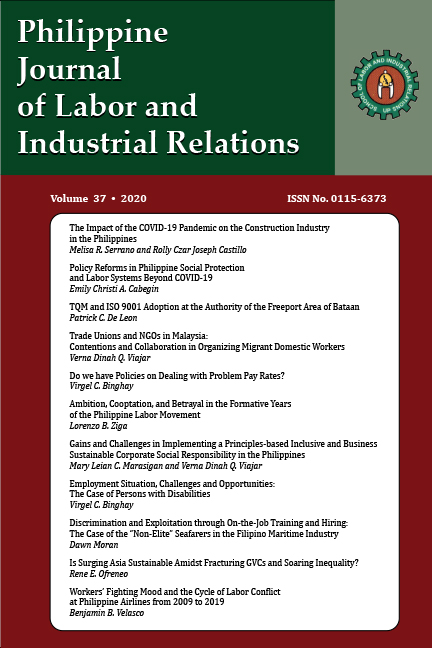Gains and Challenges in Implementing a Principles-based Inclusive and Business Sustainable Corporate Social Responsibility in the Philippines
Abstract
This study focuses on a recent and pioneering initiative called Principles-based Inclusive Business Sustainable Corporate Social Responsibility (PBIBS CSR), a pilot program supported
by the Danish Trade Union Development Agency (DTDA) and implemented by the Employers Confederation of the Philippines (ECOP) and the Federation of Free Workers (FFW) from 2016-2019. The aim of the project was to determine the feasibility of a novel form of CSR anchored on three “ideals,” e.g., adherence to national laws and international standards (principles-based), co-produced and implemented by labor and management (inclusive); and contributing to the continuing viability of enterprises (business sustainable). As a pioneering approach in the world of CSR, the PBIBS CSR encountered many challenges. The major hurdles were the reluctance of stakeholders to commit to become part of the pilot enterprises; the uneven and complex contexts of the implementing pilot enterprises; gender-blindness in CSR programs; and the prioritization and institutionalization of CSR programs. Among the vital recommendations in the recently concluded evaluation process were: to institutionalize PBIBS CSR programs (i.e., integrate in company policies for day-today implementation) to ensure its space in the priorities of enterprises; synchronize PBIBS CSR programs within the social dialogue mechanisms; and include gender equality issues and concerns in the implementation of PBIBS CSR programs and activities.


